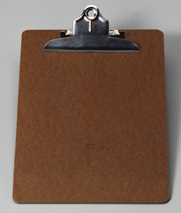Almost four-fifths (79 per cent) of smartphone owners use their device’s fingerprint scanner, according to research by the audit firm Deloitte – higher than in any developed country surveyed. More than a third of smartphones (36 per cent) in the UK now have a fingerprint reader. In a sign that consumers are becoming more enthusiastic about biometrics, usage of fingerprint sensors increased by a third year-on-year. The auditing firm says it expects usage of biometric authentication to continue to surge over the next year.
The company’s seventh annual Mobile Consumer Survey, State of the smart, analyses the mobile usage habits of 4,150 people in the UK. Some 15 million UK consumers now have a smartphone that incorporates a fingerprint scanner. In a sign of users wanting to ensure their devices are secure, the most common biometric application, at 96 per cent, was to unlock the phone.
Paul Lee, head of research for technology, media and telecoms at Deloitte, says: “Most smartphone owners use biometric authentication because it is faster and more secure than traditional methods. Passwords have to be ever longer and more complex in order to be secure, which makes them hard to remember.
“For the modern day smartphone user, a quick scan of a thumb is faster and just as secure, if not more so – and fingerprints are not forgettable. We estimate that currently, globally, well over a billion devices now include a fingerprint reader.”
As for other biometrics, such as voice, facial and iris recognition, this survey found that these were being used by relatively few smartphone owners (less than three per cent). However, this is likely to change in the medium term the firm says as biometric technology continues to improve and become more reliable and cost-effective.
Lee adds: “The fingerprint’s success has been driven in part by the biggest mobile handset manufacturers. New 3D facial scanners can be even more secure than fingerprint readers. As complex facial recognition technology continues to be standardised in new smartphone models, we would expect to see a gradual adoption of facial recognition biometrics amongst smartphone users, and for this functionality to be increasingly designed into application design. This may mean that users would only need to look at their smartphone to authenticate access to a mobile banking app – they would not even need to place their thumb on a fingerprint sensor, and would certainly not have to enter a password.
“By the end of 2018, it is likely that 3D facial recognition will be used more frequently than fingerprint scanners in smartphones. We expect that individual usage of 3D facial recognition sensors will be over 100 times daily on average.”
About four in ten, 41 per cent of smartphone owners check their bank balance at least once a week on their devices. One-fifth (20 per cent) of fingerprint-users use the scanning technology for money transfers. Applications such as splitting bills in restaurants, for example, is now done mostly via smartphones, and will likely increase in use as other form of biometrics evolves. As instant messaging and social networks increasingly support peer to peer transfers, the majority of transactions made will be authenticated using biometrics, the firm suggests.
Lee says: “As mobile commerce grows, biometric authentication is likely to be increasingly used to bypass entering address and credit card details. We would also expect more retailers – both physical and online – to enable fingerprint-based authentication of transactions within apps and from web pages and, as a result, may see higher usage than an app that requires traditional password entry.”
About the survey
The 2017 study comprises of 51,453 respondents across 33 countries and six continents. Data cited in this report are based on a nationally representative sample of 4,150 UK consumers aged 16 to 75.









